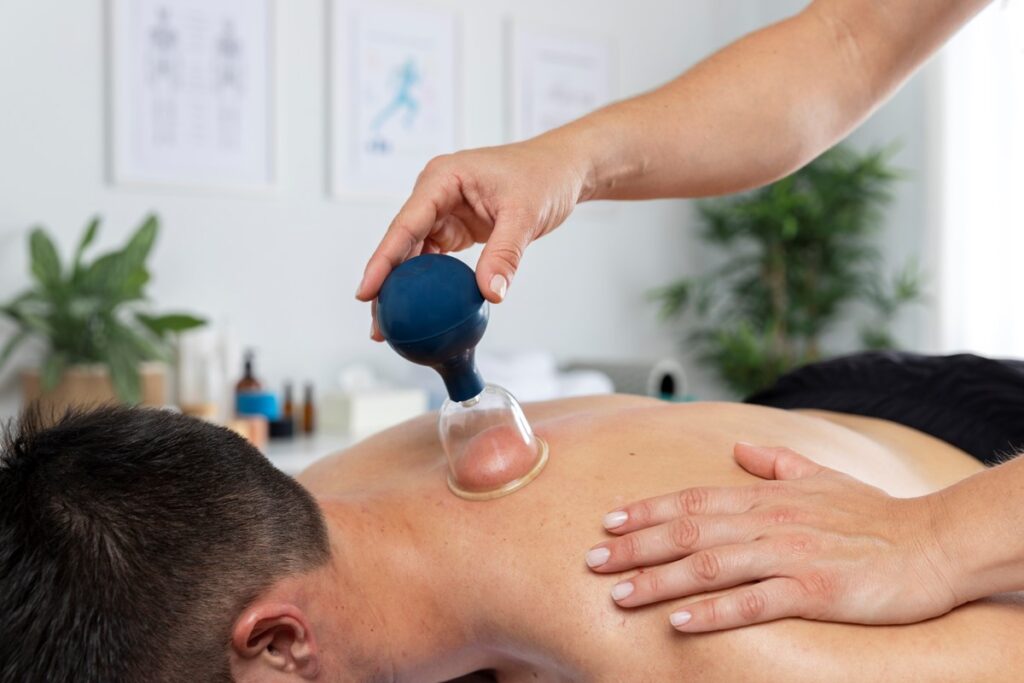In our fast-paced world, people are increasingly turning to alternative therapies for stress relief, pain management, and overall well-being. One such practice gaining popularity is cupping therapy. With roots in traditional Chinese medicine, cupping therapy offers a unique approach to healing and rejuvenation. In this blog, we will explore the history, techniques, potential benefits, and considerations of cupping therapy in a simplified manner.
The Origins and Techniques of Cupping Therapy: Cupping therapy originated in ancient Egypt, China, and the Middle East. It involves placing cups on the skin to create suction, achieved through heat or suction devices. There are two primary techniques:
- Dry Cupping: Cups create suction on the skin, which can be stationary or moved. It helps with muscle tension, blood circulation, and reducing pain and inflammation.
- Wet Cupping (Hijama): Cups are applied, and small incisions are made on the skin to draw out controlled amounts of blood. It aims to remove toxins and promote healing.
The Potential Benefits of Cupping Therapy: While scientific evidence is still being gathered, cupping therapy is sought after for several potential benefits, including:
- Pain Relief: Cupping therapy may alleviate musculoskeletal pain, relax muscles, and improve blood flow to reduce pain and inflammation.
- Relaxation and Stress Reduction: The gentle pulling sensation of the cups and the overall soothing experience can induce relaxation and help reduce stress and anxiety.
- Improved Blood Circulation: By enhancing blood flow, cupping therapy may improve oxygen and nutrient delivery to tissues, aiding healing and reducing inflammation.
- Detoxification: Wet cupping may assist in eliminating toxins from the body, supporting overall detoxification and well-being.
Considerations and Precautions: Before undergoing cupping therapy, it’s important to consult a trained practitioner and consider the following:
- Individual Differences: Cupping therapy may not be suitable for everyone. Those with specific health conditions or during pregnancy should seek medical advice before proceeding.
- Temporary Side Effects: Cupping therapy can cause temporary marks on the skin, which usually fade within a few days.
- Integration with Other Therapies: Cupping therapy can be used alongside conventional treatments but should not replace professional medical advice.
Cupping therapy provides a fascinating glimpse into ancient healing practices, attracting those seeking alternative therapies. Its potential benefits in relaxation, pain relief, improved blood circulation, and detoxification contribute to its rising popularity. As research progresses, cupping therapy’s mechanisms and benefits will become clearer. Whether you’re exploring alternative medicine or seeking relief, cupping therapy invites you to experience ancient healing in the modern world. Ensure safe and effective treatment by consulting a qualified practitioner who can tailor the therapy to your needs.



